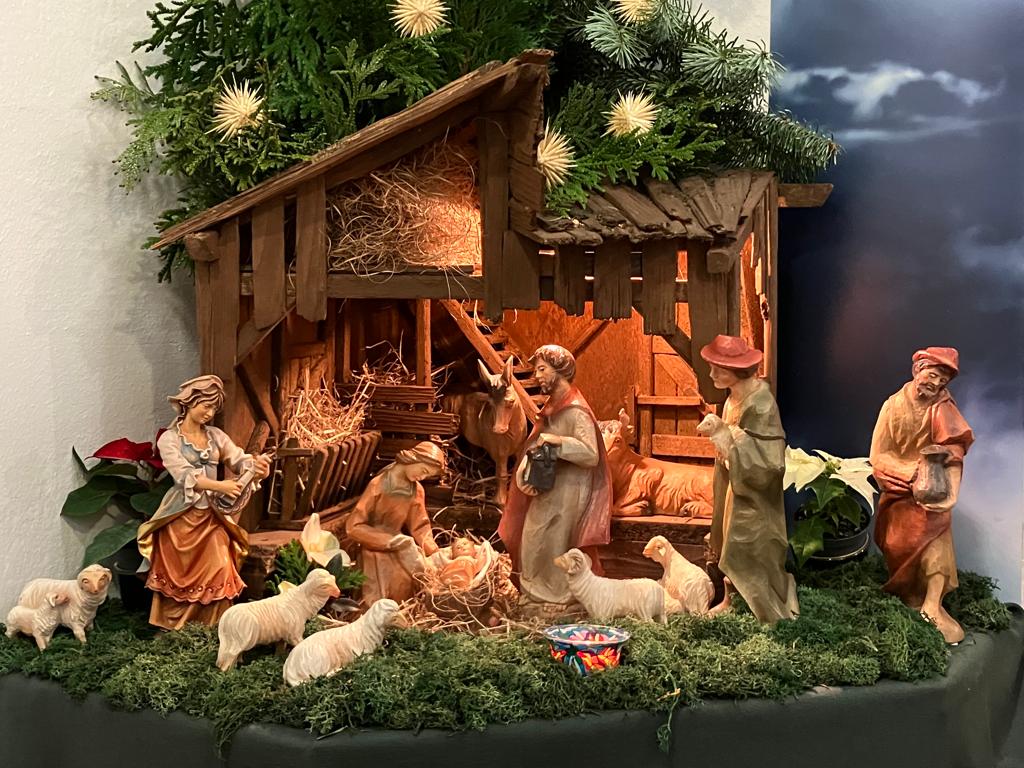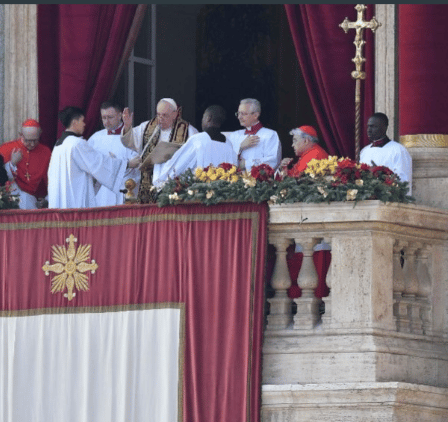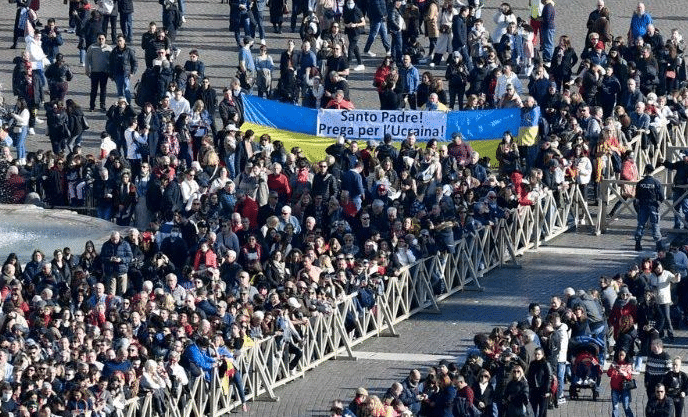Offering his Christmas greetings from the central loggia of St. Peter’s Basilica, Pope Francis gave his customary Christmas Day message and “Urbi et Orbi” blessing. The Pope greeted the thousands of pilgrims gathered in the square on a sunny and mild day for this time of year.
God with us

Before imparting his “Urbi et Orbi blessing (“to the city and the world”), the Pope gave his Christmas message underscoring the joy this day brings when we “turn our gaze to Bethlehem,” and the “Lord comes to the world in a stable and is laid in a manger for animals” since there was no room at the inn when Mary was to give birth. “The true light, which enlightens everyone was coming into the world,” he recalled from today’s Gospel.
“Jesus is born in our midst; he is God with us. He comes to accompany our daily lives, to share with us in all things: our joys and sorrows, our hopes and fears.”
The Lord comes to us “as a helpless child…poor among the poor,” knocking on the “door of heart to find warmth and shelter.”
See the sign God has given us
The Pope encouraged everyone to contemplate the true message of Christmas and rise above “the hue and din” of this time when the focus can be more on the festivities and gifts, hardening our hearts, rather than focusing on the great event of the Son of God born for us.
“Like the shepherds of Bethlehem, surrounded by light, may we set out to see the sign that God has given us. May we overcome our spiritual drowsiness and the shallow holiday glitter that makes us forget the One whose birth we are celebrating.”
The birth of peace
Quoting Saint Leo the Great, “the Lord’s birth is the birth of peace”, the Pope said Jesus is truly our peace, one the world cannot give.
“Jesus Christ is also the way of peace. By his incarnation, passion, death and resurrection, he has opened the way that leads from a world closed in on itself and oppressed by the dark shadows of enmity and war, to a world that is open and free to live in fraternity and peace. Let us follow that road!”
To follow Jesus means doing away with the burdens that can weigh on us and become obstacles, the Pope went on to say, and they can include greed, pride, thirst for power, hypocrisy, problems of old as they are of today that “exclude us from the grace of Christmas” and “block the entrance to the path of peace.” The Pope lamented that a result of this reality is that the “icy winds of war” still hurt humanity today.
“If we want it to be Christmas, the Birth of Jesus and of peace, let us look to Bethlehem and contemplate the face of the Child who is born for us! And in that small and innocent face, let us see the faces of all those children who, everywhere in the world, long for peace.”
Concrete help to suffering

Looking at our world today, the Pope called on everyone to “see the faces of our Ukrainian brothers and sisters” who are experiencing darkness and cold this year, many faraway from home due to ten months of war devastation.
“May the Lord inspire us to offer concrete gestures of solidarity to assist all those who are suffering, and may he enlighten the minds of those who have the power to silence the thunder of weapons and put an immediate end to this senseless war!”
Hunger for peace

The Pope decried today’s grave “famine of peace” in other parts of the world of what he termed this “third world war.” He recalled the people of Syria, still suffering from a years old conflict that has fallen into the background, and those living in the Holy Land where violence and casualties have increased in recent months. He prayed that in this land that witnessed the Lord’s birth there may be renewed dialogue and efforts to build mutual trust between Israelis and Palestinians.
“May the Child Jesus sustain the Christian communities living in the Middle East, so that each of those countries can experience the beauty of fraternal coexistence between individuals of different faiths.”
The Pope remembered the people of Lebanon and encouraged the international community to give the country a hand in its struggle for survival. “May the light of Christ illumine the region of the Sahel,” so that peaceful coexistence between peoples may take root again over the conflicts in the region. The Pope then prayed for a lasting truce in Yemen, reconciliation in Myanmar and Iran, and an end to all bloodshed.
Turning to the Americas, the Pope mentioned in particular the people of Haiti, who have been suffering for many years, and he prayed that political authorities and all people of good will throughout the continents work together to overcome social and political tensions.
Food for peace
Recalling how Bethlehem means “house of bread,” the Pope called on us to remember children who go hungry today while so much food is wasted and resources are spent instead on weapons. He pointed out how the war in Ukraine has worsened the reality of world hunger, especially in Afghanistan and the Horn of Africa, facing widespread famine. He lamented how wars can use food as a weapon by making distribution difficult to people already suffering.
“On this day, let us learn from the Prince of Peace and, starting with those who hold political responsibilities, commit ourselves to making food solely an instrument of peace.”
The Pope then called on our solidarity when remembering the unemployed and poor experiencing hardship in this time of economic crisis.

Solidarity to all
As Jesus came into a world marked by indifference and hostility, the Pope said today also we see the same with how foreigners and the poor face rejection today. He called on everyone to find room in their hearts for displaced persons and refugees who “knock at our door in search of some comfort, warmth and food.”
“Let us not forget the marginalized, those living alone, the orphans and the elderly who risk being set aside, and prisoners, whom we regard solely for the mistakes they have made and not as our fellow men and women.”
Open hearts
In conclusion, the Pope explained how Bethlehem “shows us the simplicity of God, who reveals himself not to the wise and the intelligent but to the little ones, to those with a pure and open heart ,” and that may we, like the shepherds, be “amazed by the unthinkable event of God who becomes man for our salvation.” God, the source of all good, makes himself poor in Jesus and asks “as alms our own poor humanity.”
“Let us allow ourselves to be deeply moved by the love of God. And let us follow Jesus, who stripped himself of his glory in order to give us a share in his fullness.”
